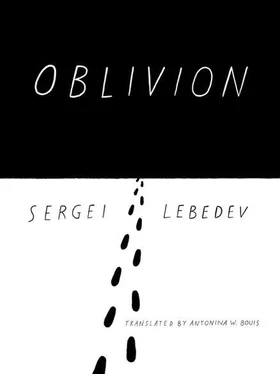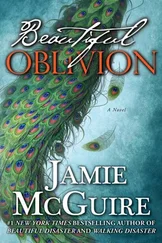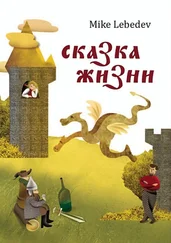His son died in an accident; his wife died soon after: the two stillborn babies shortened her life, her strength had gone into pregnancies, births, and it turned out that the boy was the only thing keeping her in this world. Her life poured into him at birth, more than usual with mother and child; the boy, firstborn and only son, absorbed too much of his mother—not in looks or personality, but in the ability to live, the life force, and she was an accidental victim.
When he was ill, so was she—her inner state was a mirror of his; you could put two thermometers next to each other, and the mercury was always in the same place, as if only one person’s temperature had been taken. The mother seemed to have yielded life to her son; without the intervention of doctors and a caesarean birth he would have died in her womb, and so he lived illegally, on the margin; there was no place for him in life, life did not open for him, welcoming him, giving him a place, and so the boy was defenseless, without the protection everyone has as a birthright. Everything was dangerous and hazardous for him—nails, slippery ice, drafts; every accident, everything unforeseen or unprepared was attracted to him; the boy lived using his life strength faster than it could be replenished, and his mother—his mother depended on him, and when he died in the quarry, she did not survive it.
Grandfather II was left alone; he seemed not to have noticed his wife’s death, but in fact it changed him. He had met his wife before becoming the man he now was, sacrificing his son to the camp and the quarry; his wife remembered the former man, and her memory, which he had no control over even had he wished for it, was an obstacle, it held him back; their joint life created borders, limits for his inner changes.
Grandfather II had simply chosen her—in his insensitive male simplicity—and she married him for life until death, and the fact that her womb was dead and she no longer had children by him did not yet mean that their connection was lost; a woman creates a man not through her wishes but by the moral impossibilities that her presence entails. When the connection between a man and a woman is broken by her disappearance, the man can quickly fall apart morally, if his surroundings are conducive to that, because he no longer encounters the honesty of flesh, fidelity, and the woman no longer supports him invisibly, he no longer has the support of even the habit of her existence.
For Grandfather II the collapse was manifested in this manner: he moved entirely into the realm of death, now certain that only death was constant and not subject to randomness; he started testing people with death—will the person succumb or not—as if trying to understand why his son died.
At that time a group of kulak peasants arrived at the camp; they were not supposed to be used in the works—the order was to send them even farther, to the low reaches of the river not far from the town; the idea was for the kulaks to colonize a wild region, but anyone who was aware that downriver was just forest and tundra all the way to the ocean knew that colonize was just a euphemism.
The echelons arrived when the rivers had opened from the ice; just then there was a collapse in a recently started shaft.
Work stopped in the pit face; the geologists agreed that one more round of detonations would get them past the danger zone, and the collapsed rock could be reinforced, held by steel supports, welded with cement. But someone had to go into the pit and drill openings, five-meter blast holes for the charge; they couldn’t reinforce anything before the repeated round of explosions, because it would destroy the reinforcement.
The men who had survived the collapse refused to go; Grandfather II drove to the mine. Everyone thought he would threaten them with execution and wondered which death—bullet or rock—would triumph. But Grandfather II did not send the surviving miners into the pit; he stood at the opening, which even on a hot day sends out a cool dampness, inhaling the mineral smell of smashed shale mixed with the stink of explosives; water dripped from all the cracks, and rocks fell from the vault, and it seemed that underground the mountain’s heavy, slow mind moved damply; it did not avenge or threaten—it simply turned over, unable to comprehend its own existence. The growth of crystals, the movement of rock is measured in so many years that the stone would not notice human events; while we, going underground, enter compressed eras, find ourselves in a past so remote that the length of our lives is reduced to zero.
That is why it is so scary when stone separates, crumbles, comes alive, there is something that is not quite a natural catastrophe about it—it is ossified time falling apart, the very foundation of the world, what is supposed to be solid and hold the rest; you have to be a demiurge, a titan, to step into that catastrophe and find what inner resources are needed to withstand it.
I don’t know what Grandfather II was feeling as he looked into the opening; but he ordered the kulaks brought there, the ones who were supposed to be sent to the lower reaches of the river. They were brought over, still in their old clothes; the prisoners were as worn as objects can be, as if they’d been rubbed out on the wooden bunks, yet they stood casually, some buttoned up, some not, they stood too freely; Grandfather II ordered the announcement to be made—whoever takes the risk and enters the mine, drills the blast holes to create a second, artificial collapse, will not be sent to the tundra, but kept in the camp.
Grandfather II probably figured that if anyone did accept, he would die in the mine. But ten men headed by the former village elder, who had never seen a mine drill before, managed to move quietly through the shaft, freezing at every creak, drill the wall as indicated on the map, and return unharmed; death did not take the exiles.
Maybe Grandfather II would have kept his promise, but he learned there at the mine that all ten came from the same region as the carver who had made the whistle and had been sent to fell trees; the former elder even had time to be pleased that the camp warden knew their home places, he thought there might be a possibility of leniency in that—but Grandfather II was already in the car giving orders to prepare the next step.
All the exiles were taken along the embankment of the railroad under construction to the river, where they were loaded on barges; the convoy soldiers returned alone and they said nothing—the people were dropped off on an island and the tugboats and barges left; since then many others were sent there, some managed to survive and start a settlement, but no one knew anything about the fate of that first group; where the island was or what had happened.
About a year later Grandfather II went blind. In late spring when there is still snow on the tundra but the sun shines brightly, the snow, icy, sugary, brilliant, reflects the harsh light, and a haze of light hangs over the tundra. It does not envelop the eyes like fog, it burns them like a magnifying glass on wood; the flood of light, anticipating the high water, gives birth to an inflamed day, and the eyes become inflamed by the unnatural whiteness.
In late spring Grandfather II traveled by car to a distant village along the ice road, still unmelted and made by trucks, like a log road through the impassable tundra swamps. A stream undermined the ice, washed out the road, and Grandfather II’s car crashed, the concussed driver drowned, and Grandfather II was left in the tundra dozens of kilometers from anywhere.
It was not a great distance, a few days’ walk, but the sun was so strong, the snows had still not melted, and the rays of reflected light turned into razor blades; whiteness looked into Grandfather II’s eyes—not the blurred, myopic whiteness of snowfall but the morbid whiteness of sparkling ice that steals the color of the sky.
Читать дальше












